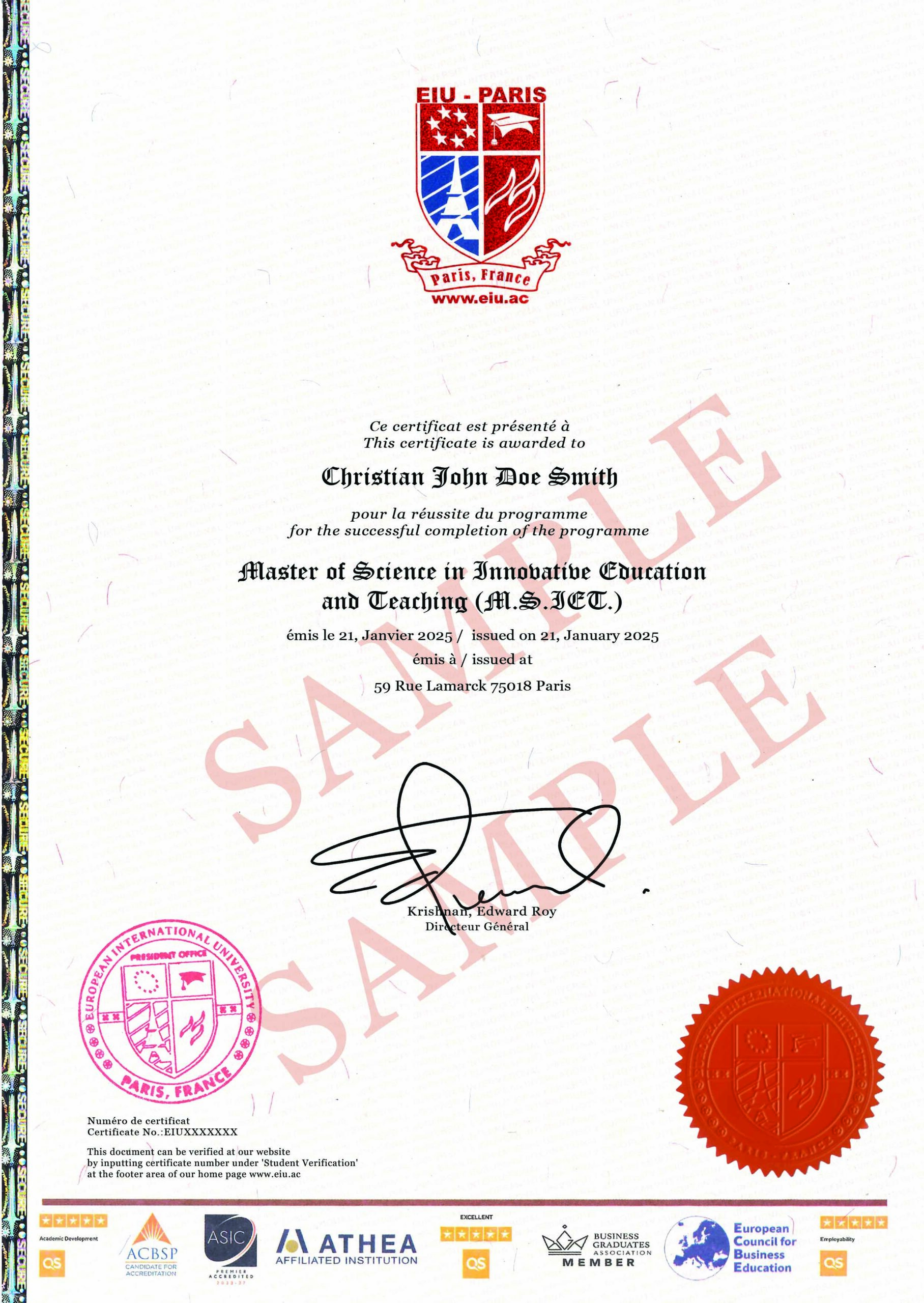Official Business WhatsApp: +33 607 591 197
Programmes & Degrees
ACBSP Accredited Business Degrees
Institutional Degrees
- Bachelor of Business Administration (BBA) Final Year Top-up
- Bachelor of Information Technology and Data Science (BSITDS) Final Year Top-up
- Bachelor of Education (BEd)
- Post Graduate Diploma in Business Administration (PGDBA)
- Post Graduate Diploma in Professional Teaching Practice (PGDPTP)
- Master of Innovative Education and Teaching (MSIET), equivalent to MEd
- Master of Science in Mental Health Psychology (MSMHP)
- Master of Science in Information Technology and Data Science (MSITDS)
- Practitioner’s Doctorate (DMan, EdD, PsyD, DITDS, DSW, DSL, etc.)
- Doctor of Philosophy (PhD)
- Professional Doctorate (PD) via VAE Assessment
- Honorary Doctorate & Honorary Professorship Titles via VAE Assessment
- Global Partners
- Degree Sample




















